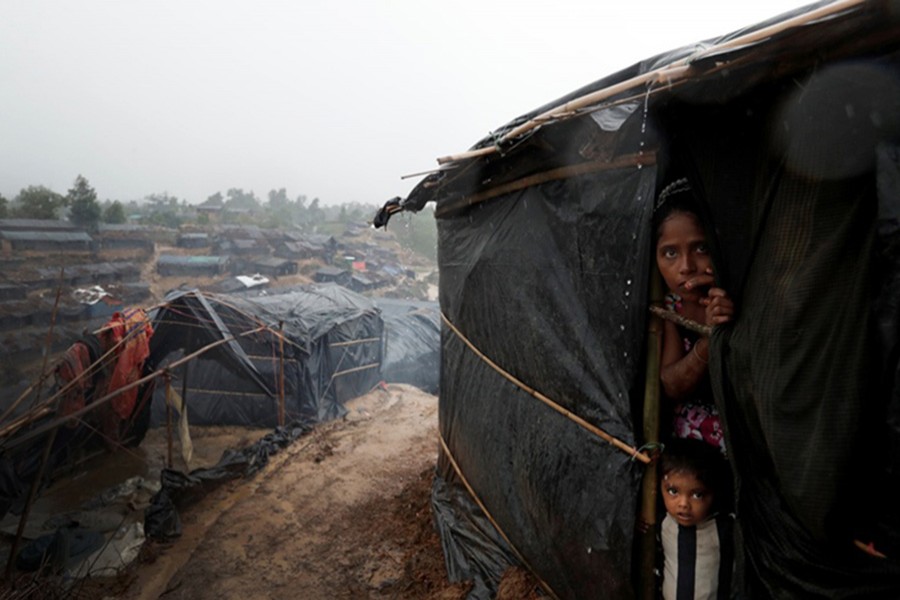
Published :
Updated :

The International Federation of Red Cross and Red Crescent Societies (IFRC) has expressed grave concern over the humanitarian conditions of Rohingyas living in Cox's Bazar camps.
Tens of thousands of people who fled violence in Rakhine to Bangladesh two years ago are still living their lives in cramped tents and shelters, in conditions that fail to meet international standards, the organisation says in statement on Monday.
The IFRC says, the average space per person in the crowded camps is 24 square metres while the minimum standards set by humanitarian organisations is at least 30 square metres.
“Space has been a challenge since the beginning of this response. In the emergency phase, our focus was on meeting basic needs and ensuring everyone had a roof over their heads. Now, we must move together to improve basic conditions at the camps, particularly for larger households,” said Syed Ali Nasim Khaliluzzaman, head of operation of the Bangladesh Red Crescent Society in Cox’s Bazar.
Bangladesh Red Crescent, supported by the IFRC and other partners, is building new shelters for the Rohingyas that will meet the basic standards for space, the statement added.
The humanitarian organisation is supporting a total of 245 families from host communities to build new durable homes that will protect them from risk during the monsoon and cyclone seasons. Besides, many more are receiving advice and guidance on how to safely and securely repair damage to their homes.
It also continues to provide people in the camps with food and relief items, water, sanitation and hygiene promotion, along with other important services including health care and psychosocial support.
Despite the efforts of the Red Crescent and other partners, meeting basic needs remains a challenge for all aid groups in Cox’s Bazar. Sanjeev Kumar Kafley, head of IFRC’s sub-office in Cox’s Bazar said:
“Until long-term solutions that address the causes of this crisis are found, hundreds of thousands of people will continue to live precariously in an area that is worryingly exposed to the elements.”


 For all latest news, follow The Financial Express Google News channel.
For all latest news, follow The Financial Express Google News channel.